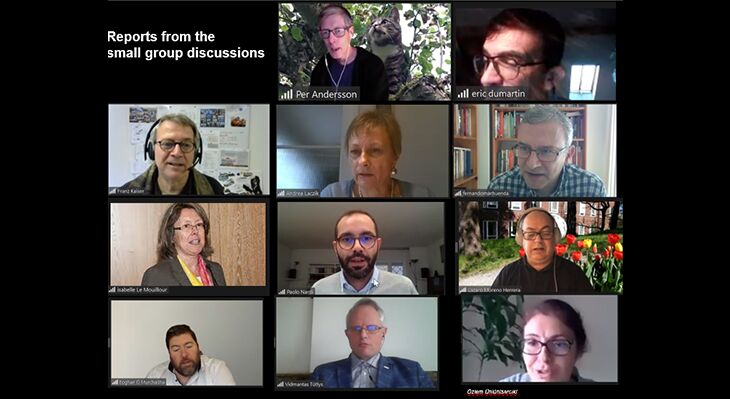What can research contribute to shaping the European Education Area?
European Research Network on Vocational Education and Training (VETNET) and BIBB, together with the European Commission, are conducting a workshop on vocational education and training research during the European Vocational Skills Week
BIBB has set itself the goal of strengthening cooperation between the national VET research institutions in Europe. A survey of the national institutions and various events will be used to identify the role of research in European vocational education and training and to discuss possibilities for cooperation.

This also met with the interest of the European Commission. It has invited BIBB and the European Research Network on Vocational Education and Training in the European Educational Research Association (EERA) to jointly conduct a workshop on 11 November 2020 during the European Vocational Skills Week.
The interest in the workshop was very high. Out of the more than 400 registered interested parties, only 120 experts from VET research and European organisations, such as CEDEFOP and ETF, were able to participate due to the event format.
The event was opened by a representative of the European Commission, Mrs Kinga Szebeni, and by introductory contributions from BIBB and VETNET. Dr. Christof Nägele (Chairman of VETNET) introduced the event by highlighting the continuity with which VET researchers are addressing European issues in VET and making contributions to their further development.
This was followed by four expert contributions on the state of VET research in Europe in general and in Spain, the Nordic countries and Poland as selected examples.
In ten working groups, important future topics from the perspective of research, cooperation potentials and obstacles to cooperation were then vividly discussed.
Experts report from the working groups
In principle, the participants agreed that VET research can make significant contributions in the dialogue to the shaping of the European Education Area. How this is already being done was demonstrated by the specialist contributions. From the participants' point of view, focused funding of VET research would be desirable.
In his final contribution, Prof. Hubert Ertl emphasised above all the importance of a solid database that VET research can provide for European VET cooperation. The collection and policy- and practice-oriented analysis of such a database is an essential contribution of institutionalised VET research at European level. Kinga Szebeni also underlined the interest of the European Commission in a continuous dialogue with VET research.
The documentation of the event will soon be available on the VETNET website.